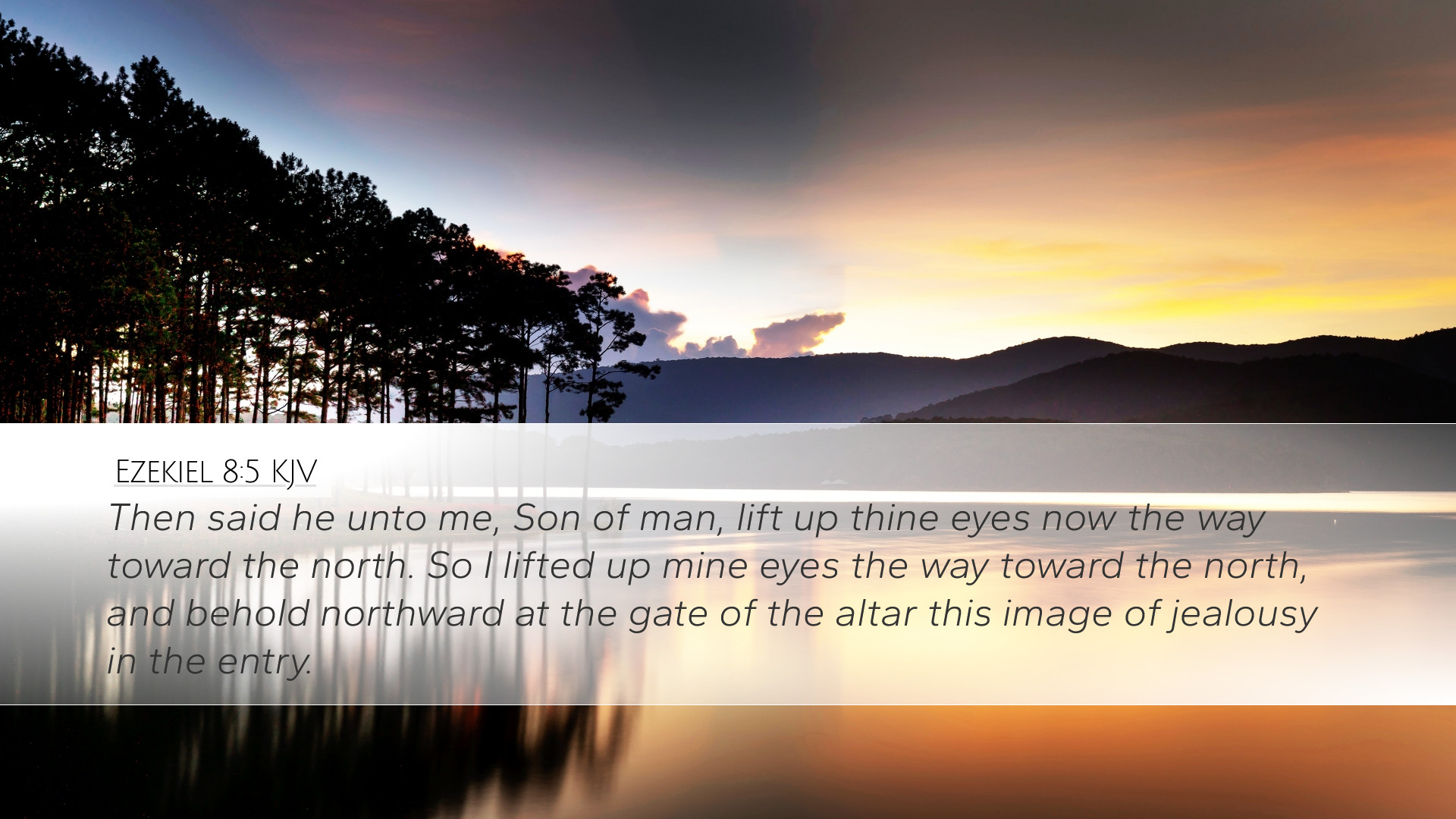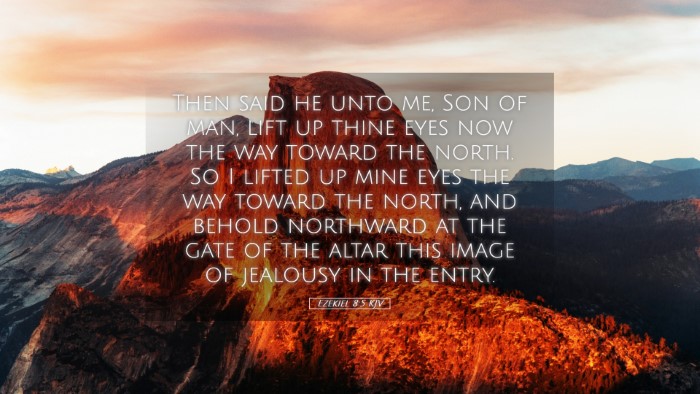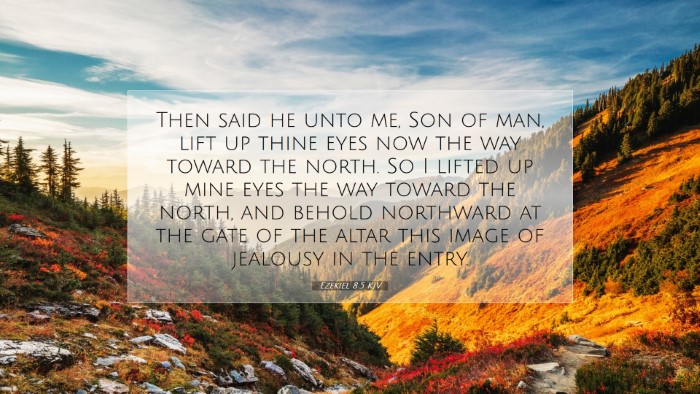Bible Commentary on Ezekiel 8:5
Ezekiel 8:5: "Then said he unto me, Son of man, lift up thine eyes now the way toward the north. So I lifted up mine eyes the way toward the north, and behold northward at the gate of the altar this image of jealousy in the entry." (KJV)
Introduction
Ezekiel 8:5 presents a profound moment in the prophetic ministry of Ezekiel, where God reveals the spiritual corruption of His people through visions. This commentary draws insights from the esteemed public domain commentaries of Matthew Henry, Albert Barnes, and Adam Clarke to unpack the significance of this verse within its context.
Contextual Analysis
Ezekiel's prophetic work occurred during a tumultuous period for Israel, characterized by idolatry and moral decay. God called Ezekiel as a prophet among the exiles in Babylon to confront the sins of Israel, particularly the idolatry taking place in Jerusalem. The vision in chapter 8 is pivotal as it lays bare the depth of Israel's apostasy.
Understanding the "Image of Jealousy"
The term "image of jealousy" is notable. As Matthew Henry explains, this phrase refers to an idol that provokes God's jealousy. The very essence of God is holiness, and He cannot abide with rivals. The image represented not only a physical object of worship but also symbolized the spiritual infidelity of Israel.
The Direction of the Vision
Ezekiel is instructed to lift his eyes toward the north. Albert Barnes suggests that the northern approach to the altar was significant since it often symbolizes the location from which judgment comes, as seen in other biblical instances. This direction indicates not only the geographical aspect but also highlights the serious nature of the content being revealed.
The Theological Implications
This verse reflects critical theological themes relevant for preaching and teaching today. It underscores God's nature as a jealous God—an attribute that affirms His holiness and sets the foundation for understanding God's righteous anger towards idolatry.
-
God's Jealousy:
As Adam Clarke points out, God's jealousy over His people is rooted in His covenant relationship with them. This jealousy is not petty; instead, it is grounded in His right to expect faithfulness from His people. This expectation transcends time and beckons modern believers to examine their own hearts for idols that may compete with their devotion to God.
-
Idolatry in Contemporary Context:
The "image of jealousy" serves as a metaphor for anything that diverts attention and worship from God. Pastors and theologians today must grapple with the reality of modern idolatry, whether in the form of materialism, status, or personal ambition. Ezekiel’s vision calls the faithful to re-evaluate their priorities and realign them with the worship of the true God.
Discussion and Reflection
For pastors, students, and scholars, Ezekiel 8:5 offers rich material for reflection and theological discussion. Consider the implications of God revealing such visions to His prophet. It reminds us of the seriousness of sin and the need for discernment in our spiritual journeys.
-
Spiritual Discernment:
It is vital for spiritual leaders to foster an environment where accountability and discernment are practiced. Just as Ezekiel was tasked with revealing the truth, so too must today's leaders confront the pervasive nature of sin and idolatry within their communities.
-
Covenantal Faithfulness:
The text calls attention to God’s demands for loyalty from His people. In light of the New Covenant, this loyalty manifests itself in our relationship with Christ. Reflecting on this relationship requires a commitment to holiness and obedience, paralleling the expectations placed on Israel.
Conclusion
In conclusion, Ezekiel 8:5 serves as a prophetic indictment against idolatry and a clarion call to faithfulness. It invokes the attributes of God’s jealousy and the imperative for human response to divine holiness. As we engage with this text, may we strive for a deeper understanding of our covenant relationship with God and a relentless pursuit of holiness in all aspects of our lives.


